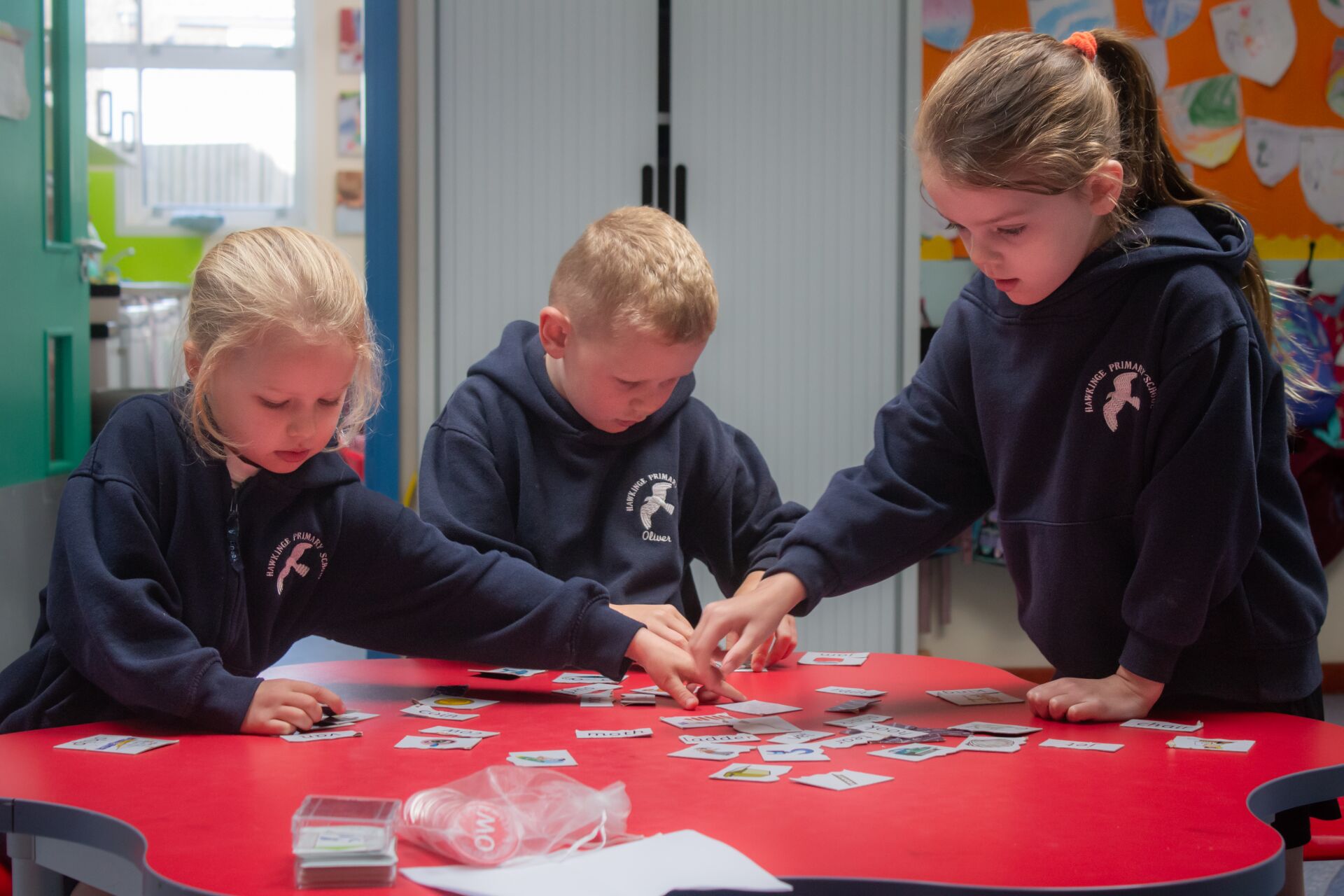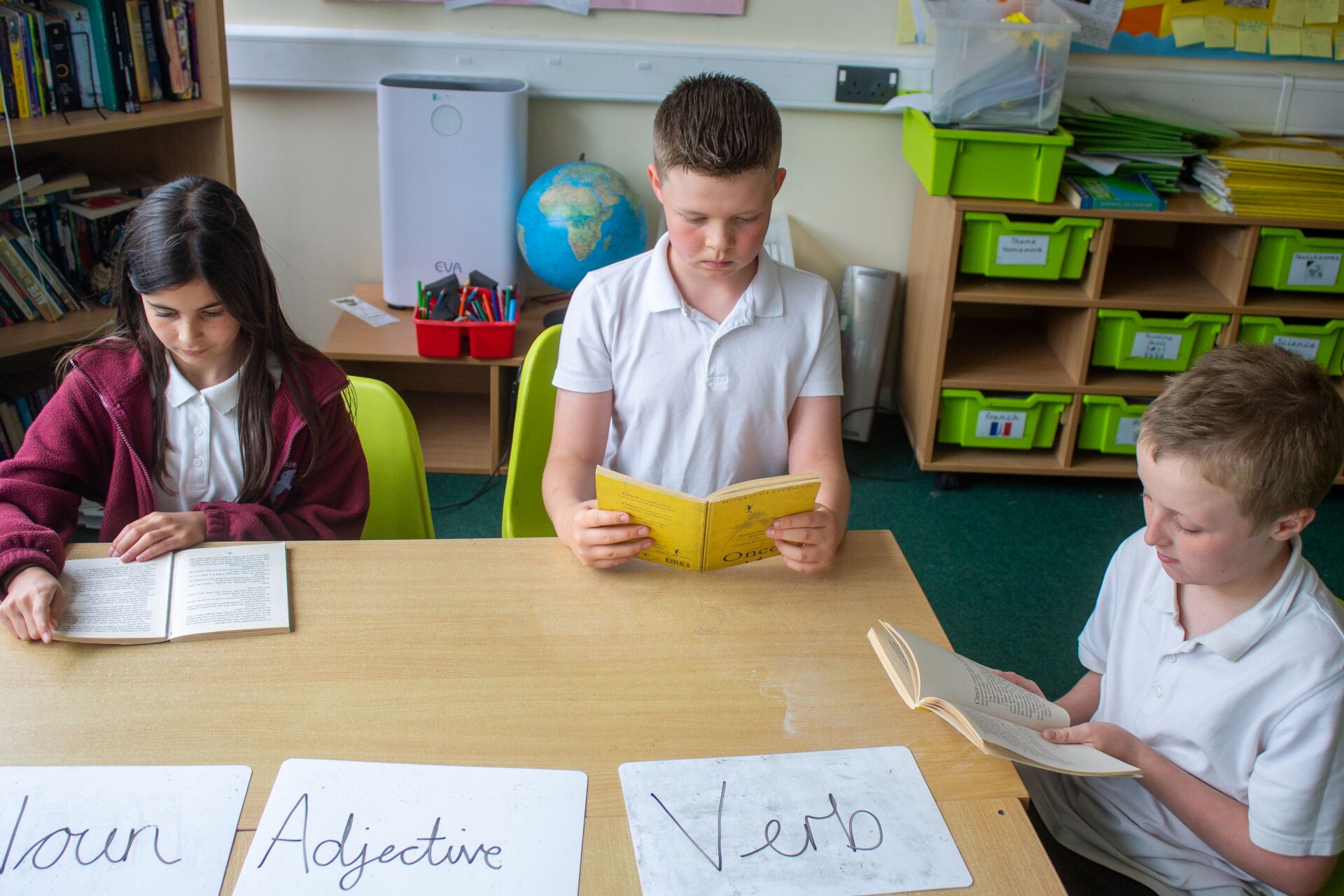English
Miss Milborrow is the English leader at our school. Her passion for leading English is fuelled by her belief that effective communication is a core life skill, that underpins all areas of learning, and which every child is entitled to and deserves.
Phonics
We follow the clear, systematic approach of ‘Anima Phonics’ at Hawkinge Primary School. It is taught every day in Foundation Stage and Key Stage 1 & these phonic lessons last 20 minutes. Children in years 1 and 2 are set by ability for this lesson. Each lesson follows a teaching approach of: review, teach, practice and apply.
Children learn to listen to and distinguish between a range of sounds. Very quickly, children link sounds to letters and begin to blend and segment simple CVC words. Next, they start to learn what happens when two letters are put together to make one sound e.g. ch, th. They also learn the alternative spellings and pronunciations of a wide range of sounds.
We offer a Phonics workshop to parents so that they can find out more about the way we teach Phonics and how best to support their child at home. Further information can also be found in our Phonics Policy


Guided Reading
Guided Reading is taught through modelled, shared and independent reading every day. Children work in small groups and read with an adult twice a week. The focus of Guided Reading is to both decode words and sentences, and also to show a clear understanding of what is happening in the book, through deep questioning and thoughtful prompting. This is in order to support children in developing their comprehension, analysis and prediction skills.
Early readers read a range of texts that are fully decodable and use only the sounds and common exception words that they have been taught, in order to practise decoding and fluency skills. Once secure, children will move onto books that are not fully decodable and require children to use other strategies to read. We regularly review and update the texts we have in school, so as to offer a wide and varied range, including non-fiction, classic novels and modern fiction.
It is so important to listen to your child read at home and to help them blend and decode words. It is also important to ask children questions about what they have read. If you would like some ideas for asking questions go to the ‘Guided Reading Questions’ link.
We offer a Guided Reading workshop to parents to help understand the structure of a Guided Reading lesson and how best to support their child at home.
Click here to read our Reading Scheme 2025/2026
Writing
Writing is taught daily through carefully planned and sequenced units, each focusing on a specific genre. Each unit begins with children exploring the key features of that genre, before learning a high quality model text. Pupils are taught to plan, edit and present their own writing, whilst having an awareness of purpose and audience.
Pupils are given opportunities to apply their writing skills across all areas of their learning, and are regularly asked to write in a cross-curricular style.
The process of writing is made up of transcription (spelling and handwriting) and composition (generating ideas, planning and structuring writing). Children are taught to communicate their ideas through clearly legible handwriting, resulting in a fluent joined style. We know that children’s writing is intrinsically linked to their oracy skills and so there is a strong focus on developing speaking and listening skills from the moment pupils start school.
Click here to read our Writing Scheme 2025/2026
